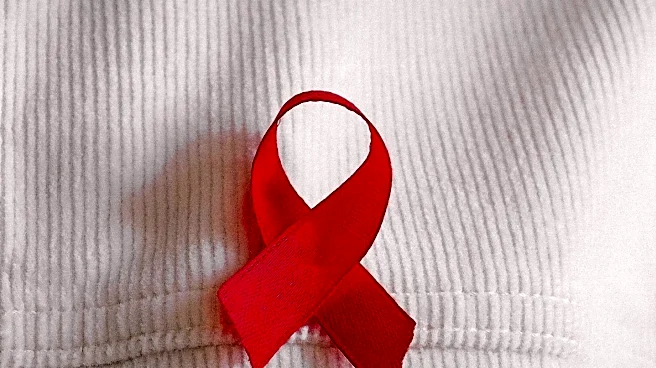What's Happening?
Gilead Sciences, Inc. has announced its participation in the 20th European AIDS Conference (EACS) in Paris, where it will present new scientific data from its HIV research and development programs. The company is showcasing the safety profile of twice-yearly
Lenacapavir for pre-exposure prophylaxis (PrEP) and the five-year outcomes of Biktarvy, which offer insights into long-term treatment. Gilead's research highlights include novel long-acting combination regimens and strategies for recruiting high-priority populations for HIV prevention studies. The company aims to advance scientific discovery and community partnerships to help end the HIV epidemic.
Why It's Important?
Gilead's research and development efforts are crucial in the fight against HIV, as they focus on person-centered approaches and community partnerships. The introduction of long-acting treatment options like Lenacapavir could significantly improve adherence and outcomes for individuals at risk of HIV. The data presented at EACS 2025 underscores the importance of tailored treatment strategies and the potential to transform HIV into a manageable chronic condition. These innovations could lead to better health-related quality of life for people living with HIV and inform future treatment strategies.
What's Next?
Gilead's novel treatment combinations are progressing to Phase 3 clinical development, which could lead to new long-acting treatment options for HIV. The company continues to focus on expanding access to HIV prevention and treatment, with ongoing studies evaluating the efficacy and safety of new regimens. Gilead's commitment to scientific innovation and community collaboration aims to address unmet needs in HIV prevention and treatment, potentially leading to a future without HIV.
Beyond the Headlines
The ethical and cultural dimensions of Gilead's research efforts are significant, as they involve collaboration with community advisory groups and targeted recruitment strategies for understudied populations. These efforts highlight the importance of inclusivity and equity in scientific research, ensuring that diverse populations benefit from advancements in HIV treatment and prevention.















